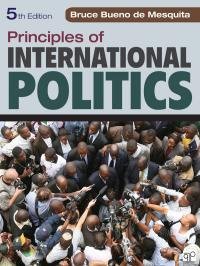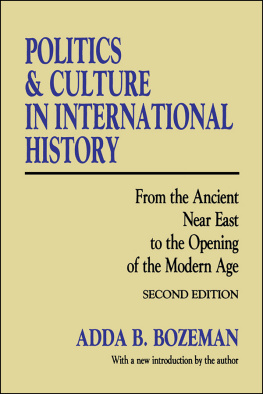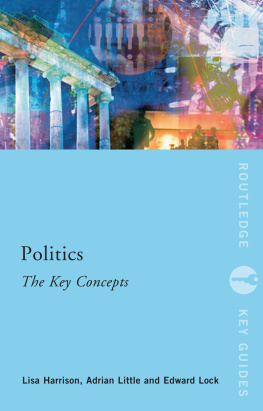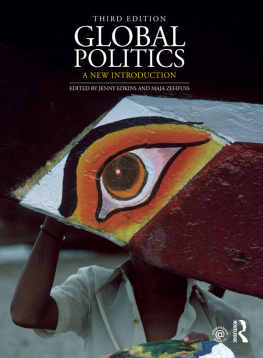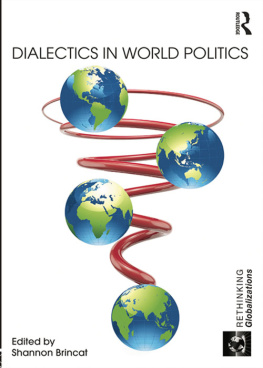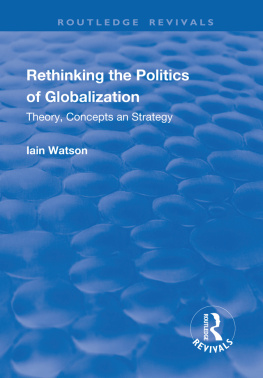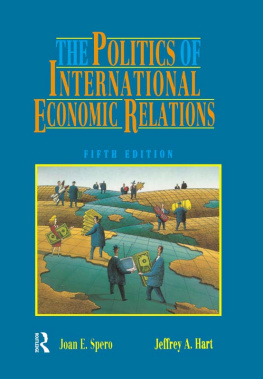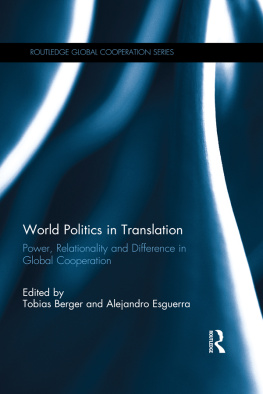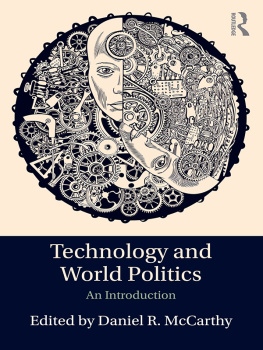
With a level of philosophical sophistication rarely found in the discipline of international relations, Sergei Prozorovs texts issue challenges that no one interested in politics in general and global politics in particular should ignore.
Michael J. Shapiro, University of Hawaii Manoa, USA
Taken together, Ontology and World Politics and Theory of the Political Subject represent the most ambitious re-articulation of the ontological and ethical foundations of universalism to date by one of the most brilliant and provocative scholars of his generation. I can thus warmly recommend these volumes to anyone with an interest in cutting-edge international political theory.
Jens Bartelson, Professor of Political Science, Lund University, Sweden
Drawing on a wide range of sources in political theory and philosophy, Prozorov develops a novel and ambitious defense of universalism. He does so not against, but through approaches that critique global models for their hegemonic and excluding nature. The result is a re-articulation of universalism that seeks to affirm difference and plurality through concepts of community, equality and freedom.
Roland Bleiker, Professor of International Relations,
School of Political Science and International Studies ,
University of Queensland, Australia
ONTOLOGY AND WORLD POLITICS
Together these two companion volumes develop an innovative theory of world politics, grounded in the reinterpretation of the concepts of world and politics from an ontological perspective.
In the discipline of international relations the concept of world politics remains ambivalent, functioning both as a synonym of international relations and its antonym, denoting the aspirations for overcoming interstate pluralism in favour of a universalist politics of the global community or the world state. Rather than distinguish world politics from international politics by its site, level or issues, Prozorov interprets it as another kind of politics. Drawing on Martin Heideggers account of world disclosure and Alain Badious phenomenology of worlds, this book posits world politics as a practice of the affirmation of universal axioms across an infinite plurality of limited and particular situations or worlds. Prozorov reinterprets the familiar principles of community, equality and freedom in ontological terms as attributes of pure being, subtracted from all positive determinations, and presents them as axioms of universalist politics valid in any world whatsoever. This approach to world politics serves as the groundwork for a comprehensive reconsideration of the central themes of political and international relations theory.
Systematic and accessible, these works will be key reading for all students and scholars of political science and international relations.
Sergei Prozorov is University Lecturer in World Politics at the University of Helsinki and Academy of Finland Research Fellow. He is the author of four books, the most recent being The Ethics of Postcommunism . He has also published numerous articles on political philosophy and international relations in major international journals.
Interventions
Edited by Jenny Edkins, Aberystwyth University and
Nick Vaughan-Williams, University of Warwick
As Michel Foucault has famously stated, knowledge is not made for understanding; it is made for cutting. In this spirit the EdkinsVaughan-Williams Interventions series solicits cutting edge, critical works that challenge mainstream understandings in international relations. It is the best place to contribute post disciplinary works that think rather than merely recognize and affirm the world recycled in IRs traditional geopolitical imaginary.
Michael J. Shapiro, University of Hawaii at Mnoa, US
The series aims to advance understanding of the key areas in which scholars working within broad critical post-structural and post-colonial traditions have chosen to make their interventions, and to present innovative analyses of important topics.
Titles in the series engage with critical thinkers in philosophy, sociology, politics and other disciplines and provide situated historical, empirical and textual studies in international politics.
Critical Theorists and International Relations
Edited by Jenny Edkins and Nick Vaughan-Williams
Ethics as Foreign Policy
Britain, the EU and the other
Dan Bulley
Universality, Ethics and International Relations
A grammatical reading
Vronique Pin-Fat
The Time of the City
Politics, philosophy, and genre
Michael J. Shapiro
Governing Sustainable Development
Partnership, protest and power at the world summit
Carl Death
Insuring Security
Biopolitics, security and risk
Luis Lobo-Guerrero
Foucault and International Relations
New critical engagements
Edited by Nicholas J. Kiersey and Doug Stokes
International Relations and Non-Western Thought
Imperialism, colonialism and investigations of global modernity
Edited by Robbie Shilliam
Autobiographical International Relations
I, IR
Edited by Naeem Inayatullah
War and Rape
Law, memory and justice
Nicola Henry
Madness in International Relations
Psychology, security and the global governance of mental health
Alison Howell
Spatiality, Sovereignty and Carl Schmitt
Geographies of the nomos
Edited by Stephen Legg
Politics of Urbanism
Seeing like a city
Warren Magnusson
Beyond Biopolitics
Theory, violence and horror in world politics
Franois Debrix and Alexander D. Barder
The Politics of Speed
Capitalism, the state and war in an accelerating world
Simon Glezos
Politics and the Art of Commemoration
Memorials to struggle in Latin America and Spain
Katherine Hite
Indian Foreign Policy
The politics of postcolonial identity
Priya Chacko
Politics of the Event
Time, movement, becoming
Tom Lundborg
Theorising Post-Conflict Reconciliation
Agonism, restitution and repair
Edited by Alexander Keller Hirsch
Europes Encounter with Islam
The secular and the postsecular
Luca Mavelli
Re-Thinking International Relations Theory via Deconstruction
Badredine Arfi
The New Violent Cartography
Geo-analysis after the aesthetic turn
Edited by Sam Okoth Opondo and Michael J. Shapiro
Insuring War
Sovereignty, security and risk
Luis Lobo-Guerrero
International Relations, Meaning and Mimesis
Necati Polat
The Postcolonial Subject
Claiming politics/governing others in late modernity
Vivienne Jabri
Foucault and the Politics of Hearing
Lauri Siisiinen
Volunteer Tourism in the Global South
Giving back in neoliberal times
Wanda Vrasti
Cosmopolitan Government in Europe
Citizens and entrepreneurs in postnational politics
Owen Parker
Studies in the Trans-Disciplinary Method
After the aesthetic turn
Michael J. Shapiro
Alternative Accountabilities in Global Politics
The scars of violence
Brent J. Steele
Next page

